Warner Bros.
Original release: April 9th, 1976
Running time: 138 minutes
Director: Alan J. Pakula
Writers: William Goldman, Bob Woodward, Carl Bernstein
Cast: Robert Redford, Dustin Hoffman, Jason Robards, Hal Holbrook
Your lives are in danger: 02:01:48 to 02:04:11
Deconstructing Cinema
The Watergate Scandal, The Washington Post
The Pentagon Papers, National Archives
“America, in its political campaigns, must not again fall into the trap of letting the end, however great that end is, justify the means.” ~ Richard Nixon
While it’s human nature to want to fix our mistakes, it can sometimes have more disastrous consequences than just leaving them alone. In the political arena, fixing a mistake and covering it up can be hard to distinguish from each other, as we’ve seen with the Watergate Scandal in the 1970’s.
All The President’s Men tells of two real-life reporters from the Washington Post, Bob Woodward (Robert Redford) and Carl Bernstein (Dustin Hoffman), who start working on a story about a break-in at the Watergate Complex in Washington. At first their editor, Ben Bradlee (Jason Robards), believes it to be a small, unimportant story, but when Woodward is advised by “Deep Throat (Hal Holbrook)”, a senior government official and anonymous source he has used before, to “follow the money”, it becomes much larger than anyone could have imagined.
After finding out the burglars are linked to the CIA and that they already have an attorney, Woodward and Bernstein dig deeper and discover they’re also linked to thousands of dollars that have been diverted from a slush fund set up by Nixon’s Committee to Re-elect the President (CREEP). They then connect the head of CREEP and former Nixon Attorney General John N. Mitchell, the treasurer Hugh W. Sloan, Jr. and White House Chief of Staff H. R. Haldeman to the money and the burglars.
But was the Watergate Scandal more than just about covering up the sabotaging of the Democratic Party to ensure Nixon’s re-election? Since he was likely to win anyway, what else could it have been about?
In what’s mostly relegated as a footnote in history now, in 1971, the New York Times published the Pentagon Papers, officially titled “Report of the Office of the Secretary of Defense Vietnam Task Force”, a group of government documents that detailed the history of U.S. involvement in Vietnam. Henry Kissinger, who served as both the US National Security Advisor and the United States Secretary of State, was less than amused with the news.
In between the break-in and Nixon’s resignation, along with 40 government officials, including Haldeman who were either indicted or jailed, Woodward and Bernstein would stick to their guns and continue to follow the money to uncover the story of the century.
To get that story they would have to follow up leads that sometimes turned into dead ends, interview people who would later retract their accounts, and misinterpret information and be hung out to dry by their editor and peers at the newspaper. What troubled Bradlee the most about their story was their reliance on unnamed sources, particularly “Deep Throat”, whom they dubbed “garage freak”. Unless the claims were backed by confirmed sources they could end up ruining not just the reporters’ careers but the future of the Washington Post itself.
Under pressure to get clear confirmation on Haldeman’s connection to the burglary, they then run the story but the White House issued a non-denial denial, claiming it was biased and misleading. Woodward goes back to his source, Deep Throat.
It’s night time and he jumps out of a taxi, running to an underground car park. Through the darkness he emerges, his shirt is untucked in his trousers, he’s a mess, he overslept and now he’s late. He looks around nervously, then continues making his way forward, into more darkness where he hopes Deep Throat is waiting for him. He is and he’s not happy.
WOODWARD: Yes
DEEP THROAT: You’ve done worse than let Haldeman slip away; you’ve got people feeling sorry for him. I didn’t think that was possible. A conspiracy like this, you build from the outer edges and you go step by step. If you shoot too high and miss, everybody feels more secure. You’ve put the investigation back months.
WOODWARD: We know that and if we were wrong, we’re resigning. Were we wrong?
DEEP THROAT: You’ll have to find that out, won’t you?
At this point Woodward explodes in anger. His career is in ruins. Right now he just wants answers and no more of Deep Throat’s vague riddles.
He looks at Deep Throat who just stares back at him, unmoving and silent. Woodward swallows hard and waits for an answer. Deep Throat looks as if he’s about to say something, but hesitates. He thinks for a moment.
Woodward’s mouth hangs open. He fumbles in his pockets until he finds what he’s looking for; he never takes his eyes off Deep Throat.
It’s the moment Woodward realises the grass snake he’s been chasing is actually a boa constrictor that threatens to swallow them whole. The implications are huge. This isn’t just about a story anymore, as Bradlee says later on, “Nothing’s riding on this except the, uh, First Amendment, freedom of the press, and maybe the future of the country. Not that any of that matters, but if you guys fuck up again, I’m going to get mad. Goodnight.”
If such a conspiracy goes all the way to the White House, what does say about the President, the man elected to enforce laws, treaties, and court rulings; oversee federal policies, the national budget and appoint federal officials?
On August 9th, 1974, Nixon became the first ever President of the United States to resign – and by doing so avoided impeachment after being accused of misusing government agencies such as the FBI, the Central Intelligence Agency and the Internal Revenue Service during the course of the cover-up. He was then given a pardon by Gerald Ford on the same day he became the 38th President of the United States.
The real-life pair, Woodward and Bernstein, also published the results of their investigation as a novel in 1974. While the movie keeps the order of events (from the break-in to Ford’s inauguration), there are deviations from the novel but not the overall story as it happened:
After all of this it’s only natural to ask ‘Who was Deep Throat?’ For many decades his real identity remained a mystery. Woodward and Bernstein kept their word and protected him as their source, promising never to reveal anything about him until either after his death or if he himself went public.
Few films have managed to effectively recreate the electricity that charges through the world of journalism when it touches politics in real life. All The President’s Men is a rarity in this field and still stands out today when we look at how the media gathers information from its sources and how information is withheld from the general public. We need only to look to the News of the World and Wikileaks as two opposing examples of this.
- (1) Green, R The 48 Laws of Power (2003), Profile Books
- (2) Noble, W. Presidential Power on Trial: From Watergate to All the President’s Men (2009) Enslow Publishers
- (3) Campbell, W. J. Getting It Wrong: Ten of the Greatest Misreported Stories in American Journalism (2010) University of California Press
One criticism of All The President’s Men is that while it promotes the heroic-journalist story, Woodward and Bernstein have become synonymous in our minds with Watergate, so much so that it detracts from what the whole scandal was really about. Who talks about the Pentagon Papers? This is the power of cinema.
Like Woodward in that underground car park with Deep Throat, we’re only given glimpses like shadows flickering on a wall, to use Plato’s allegory of the cave. Yet we should never take it for granted that that’s all there is. The only mistakes we can be sure of are our own, but beyond that, de omnibus dubitandum.
About Patrick Samuel

The founder of Static Mass Emporium and one of its Editors in Chief is a composer and music producer with a philosophy degree. Static Mass is where he lives his passion for film and writing about it. A fan of film classics, documentaries and World Cinema, Patrick prefers films with an impeccable way of storytelling that reflect on the human condition.











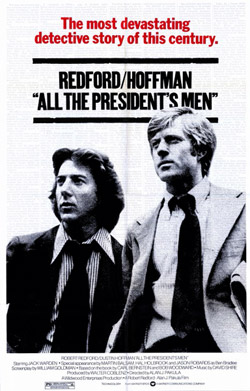
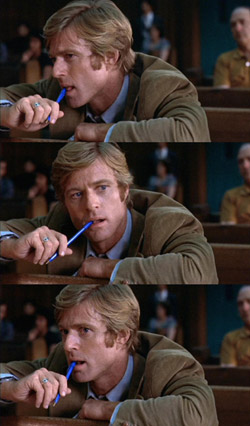
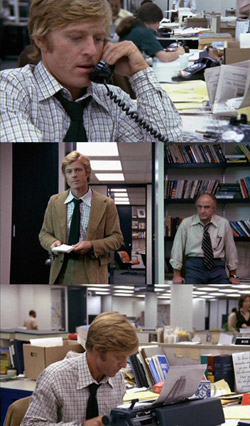
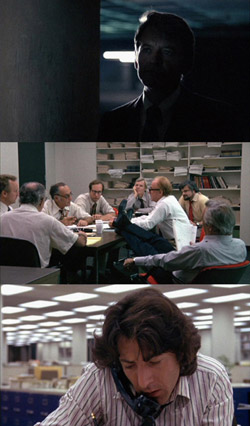
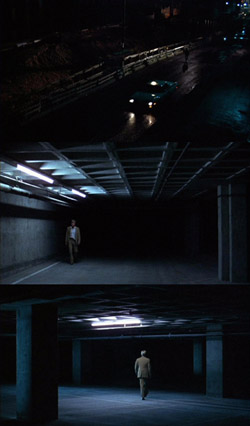
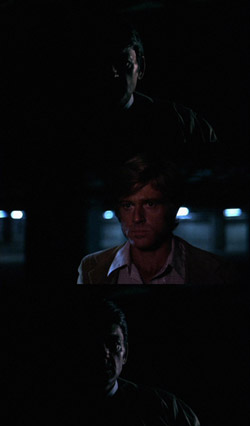
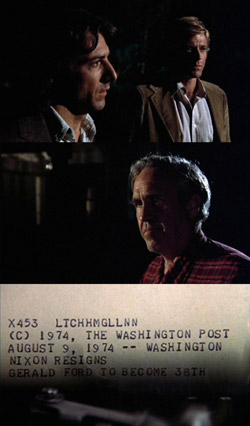



























































 Please wait...
Please wait...